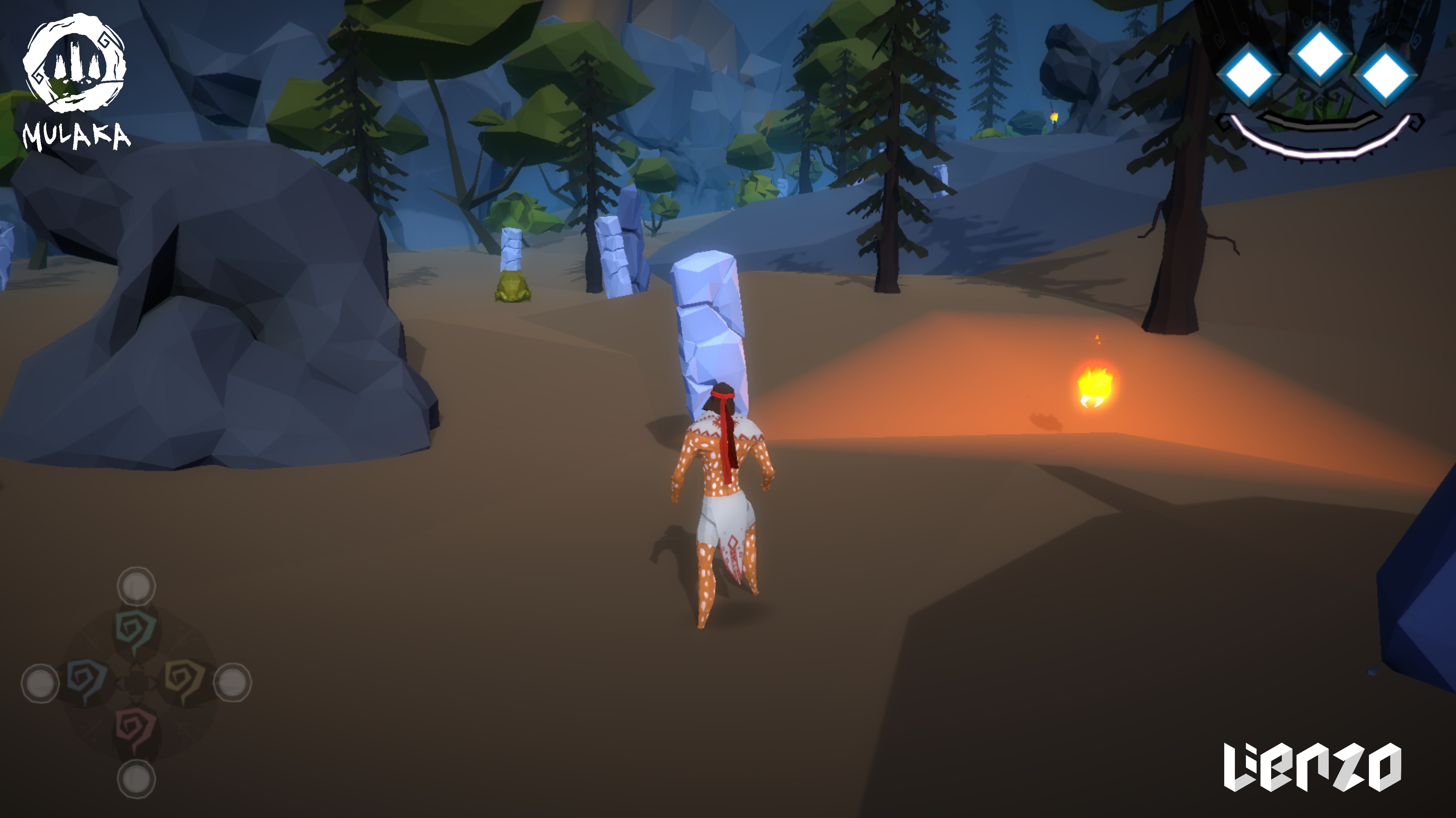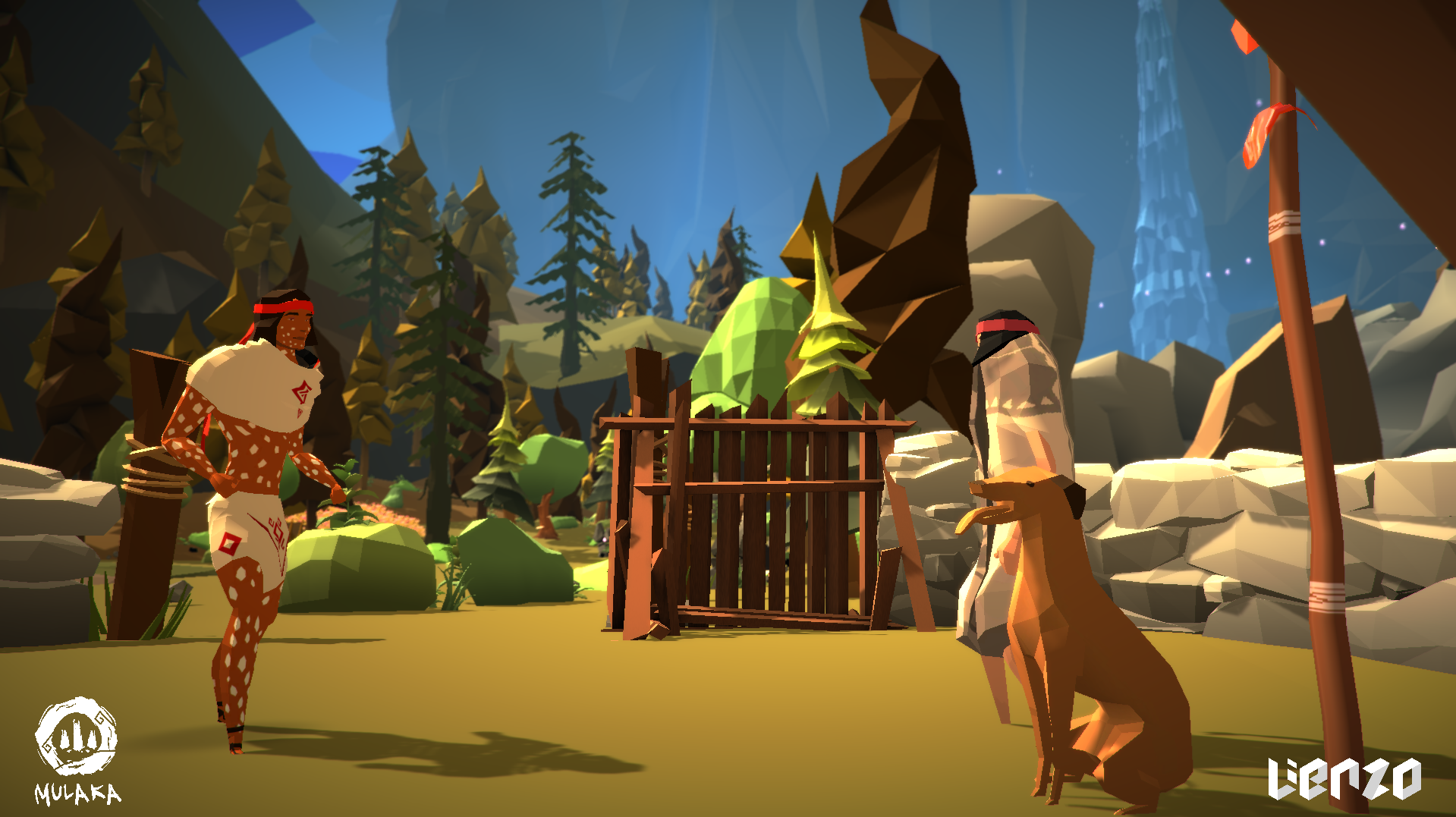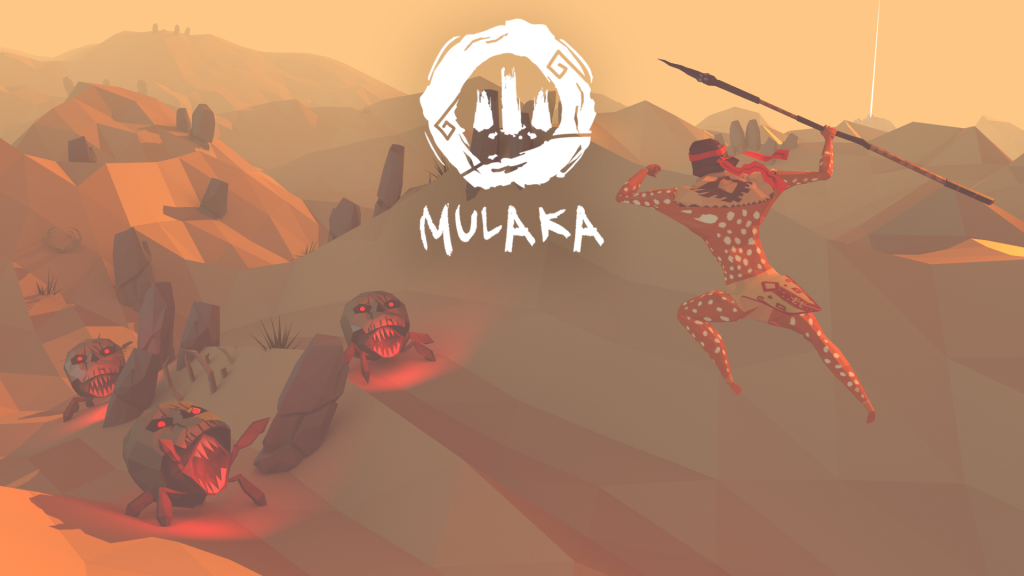At PSX 2017 recently, I had a chance to sit down with a fellow colleague that is from Mexico City before checking out Mulaka on PS4. He told me that this game has the chance to light the fire for Mexican video game development, similar in what The Witcher did for Polish game development. After spending 30 minutes with Mulaka, I think he’s right.
Mulaka is a Legend of Zelda-like action adventure game that revolves entirely around the indigenous culture of the Tarahumara. Everything about the game is infused with authentic represenation of the culture from the location to the story to even the gameplay mechanics.
You play as the Sukuruame (shaman) whose purpose is to defeat the corruption in the land. The level I got to play was about halfway through the game. Visually, it wasn’t too terribly impressive but there is an element of charm to its clay-like people and environments. Moving around the world feels like you would expect from a typical 3D platformer or action-adventure title.
Also: Wattam Brings Back the Charming and Bizarre Tone of Katamari Damacy [Preview]
The hack-and-slash gameplay is pretty standard, enhanced by the unique ways of engaging with enemies. The typical combo-based light and heavy attacks are there as you’d expect, but the main character’s transforming powers are where Mulaka really shines. Drawing straight from the Tarahumara culture, you have a limited magic bar that allows you to become several different animals like an eagle or bear.

Some of those transformations assist you in battle, such as mauling enemies, but their main purpose is completing puzzles. For instance, that same bear transformation can be used to destroy rocks that hinder progress, while the eagle is able to fly and help you reach higher platforms.
These transformations play directly into puzzles and maneuvering around the level. Though the scale of the level I played on wasn’t exactly massive or super detailed, the sheer variety of gameplay choices make up for that. Not only do you have a ton of powers at your disposal to wreck havoc, but the enemies you’ll face have tricks up their sleeves, too.
There are normal ground enemies, flying monsters that must be brought down or hit with your throwing spear, laser towers that are impossible to fight without a shield and even invisible creatures that can only be seen with one of your powers.
In this particular level of Mulaka, I had to gather three stones to advance to the final boss. Each of the three required a different style of gameplay to advance. One was a straight multi-wave mini-boss fight that challenged me to master the complex combat systems. Another was a test of my knowledge of the powers at hand for some intense platforming. The final test, however, was a fun puzzle that involved redirecting water.

There is a sufficient amount of challenge to be found, as I was the only one that entire day that was able to complete the three tests in Mulaka in the limited time. That doesn’t mean it wasn’t without its frustrations, though. For example, restoring your health has a lengthy animation that can’t be interrupted or else it will fail, making it basically impossible to restore health during fights.
Speaking of fights, there are some understandable bugs that still need to be ironed out before Mulaka releases next year. After gathering the three stones, the final boss became totally unplayable due to the rocks I needed not spawning. Despite this, what I was able to experience from the fight certainly gave off classic Zelda vibes, requiring me to think outside the box to find the enemy’s weakness.
There is something really special to be found in Mulaka. You don’t have to know anything about the Tarahumara culture to enjoy the game’s truly unique style and environments. Mulaka has the potential to light the spark of video game development in Mexico, while instructing gamers everywhere on a society that many have never even heard of.







